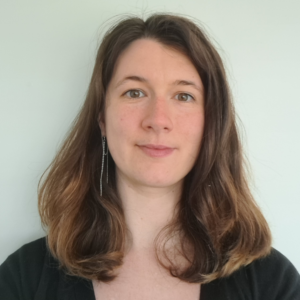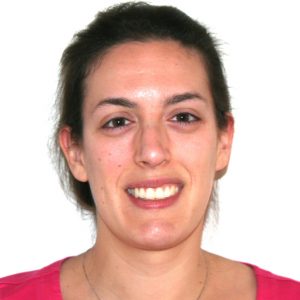Celebrating International Day of Women and Girls in Science with the brilliant women at Physiomics
11th of February was the International Day of Women and Girls in Science. On a day that was created to promote equal representation and gender equality in the science, technology, engineering and mathematics (STEM) disciplines, Physiomics are proud to have a team of scientist that is made up of 50% women. To mark the occasion, we have taken the opportunity to celebrate and get to know some of the brilliant women in our team. Join us as we share their insights, experiences and inspirations through a series of Q&As.
Introducing Dr Lea Sta, Biosimulation Scientist

Léa Sta is an applied mathematician with experience in cell signalling and receptor-ligand models.
Q: What led you to choose a career in mathematical modelling?
Lea: I pursued my interests and what triggered my curiosity. I liked making connections between different subjects and the beauty of an elegant reasoning in mathematics, and I was always curious on how the world was working. So, I started by studying mathematics and physics, followed by a master’s in applied mathematics, with a focus on physics and engineering problems. I was not satisfied with the field of application available to me at the end, so when I saw an opportunity to do a PhD in mathematical immunology, in a foreign country, with the promise to work in collaboration with scientists of different background, I applied. I loved learning about this new branch of science that is complex but also at the root of today’s medicine.
Q: How did you end up at Physiomics and what inspires you to continue to follow a career in science?
Lea: At the end of the PhD, I saw a position at Physiomics that seemed perfect: mathematical biology, this time directly applied to on-going potential cancer treatments. To me, applying mathematics to understand better how the human body works, whether at an abstract level as I did during my PhD, or on a more clinical level, as I do at Physiomics, is deeply rewarding. Now I can say that I work in cancer research, I learn about all these potential future treatments, I help support this research… maybe the treatment will fail, but maybe it will succeed. This work provides me hope for this illness that is so rare and so common at the same time.
Q: What advice would you give to young women aspiring to pursue a career in science?
Lea: Just go for it. It is fascinating, there are so many things to do. And as a woman, you also have your place here. One of my maths teachers in high school told me that I was approaching mathematics “like a boy”, because I did not hesitate before starting an exercise and just started doing it. It is ok to doubt, but don’t let it freeze you. Science is, after all, a story of trials and theories that failed or were dismissed until a solution, more correct, but maybe not definitive, was found.
Q: Are there any women scientists or mentors who have inspired or influenced your career?
Lea: I have a big fascination for Hedy Lamarr. She was a beautiful actress of the Hollywood’s golden age, but also a brilliant self-taught inventor: she developed a technology that is at the root of our communication devices today.
Introducing Dr Nathalie Dupuy, Senior Biosimulation Scientist

Nathalie is a biomedical computational scientist with experience in data science, machine learning and computational neuroscience.
Q: Can you briefly tell us about your entry into the field of mathematical modelling?
Nathalie: After my initial studies in maths/physics my path has been far from linear: I started in electrodynamics and control system; did a detour in computational neuroscience; and I now work in mathematical modelling and data science to support drug development here at Physiomics. Crossing different scientific fields has been very exciting journey, and I had the privilege to study and work alongside very bright people from diverse horizons. Plus being able to impact medical research in any way is really inspiring!
Q: Are there any challenges that you’ve encountered as a woman in science?
Nathalie: I must admit that I have been lucky and haven’t had to face challenges related to being a woman in science, that I have recognised. I did notice, however, that the presence of women in tech fields was scarce in some instances (e.g., professors or senior positions in companies; big talks in some conferences). But I also met women who happily manage both a successful career and a family. Another recent example is the Physics Nobel price Anne L’Huillier.
Nowadays we can more easily hear about and follow these inspirational figures via podcasts etc… So as long as young people can see them, there is a bright future for women in science!
Q: If you could choose any scientific concept or technology from science fiction to become a reality, what would it be and why?
Nathalie: Without hesitation: teleportation! I’m sure it would create havoc on Earth, but I would love to be able to teleport from here in the UK back to my family in the South of France, stopping by Machu Picchu on the way… and as a bonus – avoid traffic jams!
For more information about International Day of Women and Girls in Science, visit: https://www.womeninscienceday.org/



